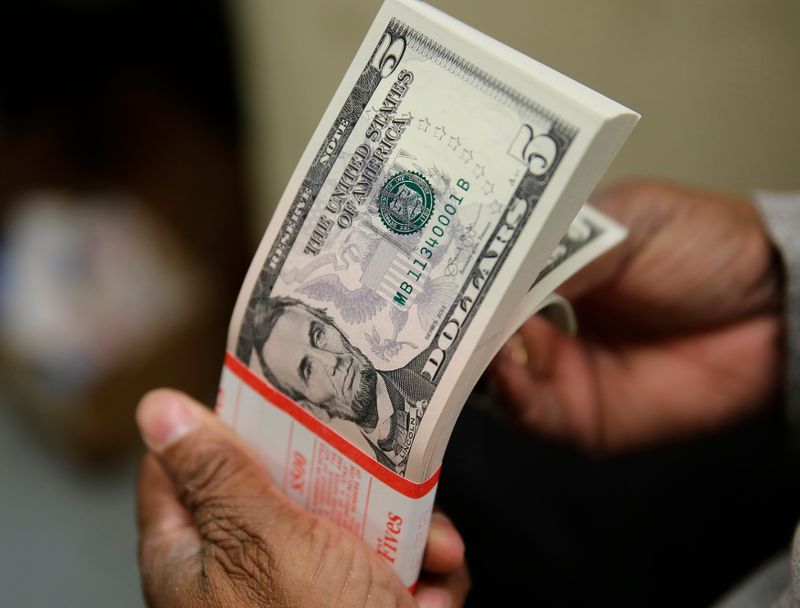By Herbert Lash
NEW YORK (Reuters) – The dollar fell on Wednesday as U.S. Treasury yields slid on fears the U.S. economy could slide into recession after Federal Reserve Chair Jerome Powell said higher rates are painful but are the means the U.S. central bank has to slow inflation.
The Fed is not trying to engineer a recession to heel inflation but is fully committed to bringing prices under control even if doing so risks an economic downturn, Powell said at a hearing of the U.S. Senate Banking Committee.
“Higher interest rates are painful, but it’s the tool we have to bring down inflation,” Powell said.
Investors worry that aggressive interest rate hikes by major central banks to tame inflation risk causing a sharp global slowdown or recession. Higher rates have strengthened the dollar but the euro has gained in recent days on the European Central Bank’s plans to raise rates to contain inflation.
“The Federal Reserve’s resolve is setting the stage for bigger moves by other central banks and that’s leading the euro higher, for example, and the Canadian dollar higher,” said Kathy Lien, managing director at BK Asset Management in New York.
“The sell-off in U.S. Treasuries tells us that the market was not surprised by anything that Powell said. I would attribute the dollar weakness more to the greenback’s moving in lock step with Treasury yields,” Lien said.
British consumer price inflation hit a 40-year high at 9.1% in May, while annual Canadian inflation surged to 7.7% last month to the highest rate since January 1983. The data is the latest to show consumer prices running hotter than expected.
Sterling initially lost almost 1% as it fell to a near one-week low of $1.2162, but it has pared most losses. The Canadian dollar rose against the U.S. currency, moving further away from the 1.30 level it breeched last Friday and on Monday.
“Powell is giving the greenlight for further dollar strength against the Japanese yen,” Lien said.
Market players are torn between recognizing that central banks are tightening financial conditions more aggressively than expected a month or two ago and concern about what the economic fallout is going to be, said Marc Chandler, chief market strategist at Bannockburn Global Forex.
“Sentiment is fickle partly because we’re unsure when inflation will peak,” Chandler said. “Everything is being driven by inflation, inflation expectations and central bank policy.”
The dollar index fell 0.31%, with the euro up 0.47% at $1.0574. The yen strengthened 0.36% to 136.14 per dollar, while sterling was down 0.04% at $1.2267.
The safe-haven dollar has been gaining ground on most peers. The yen hit a fresh 24-year low as rising U.S. and European bond yields contrasted with low Japanese interest rates.
“Recession fears are growing as central bankers slow demand to curb inflation. Pro-cyclical currencies are on the back foot and the dollar remains very much in demand,” said Chris Turner, global head of markets at ING.
Analysts see no immediate end to a sell-off that has weakened the yen 18% this year from 115.08 at the end of 2021.
Currency bid prices at 2:08 PM (1808 GMT)
Description RIC Last U.S. Close Pct Change YTD Pct High Bid Low Bid



